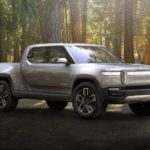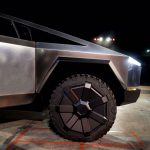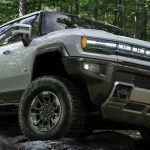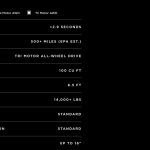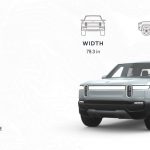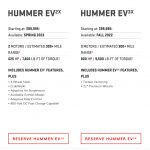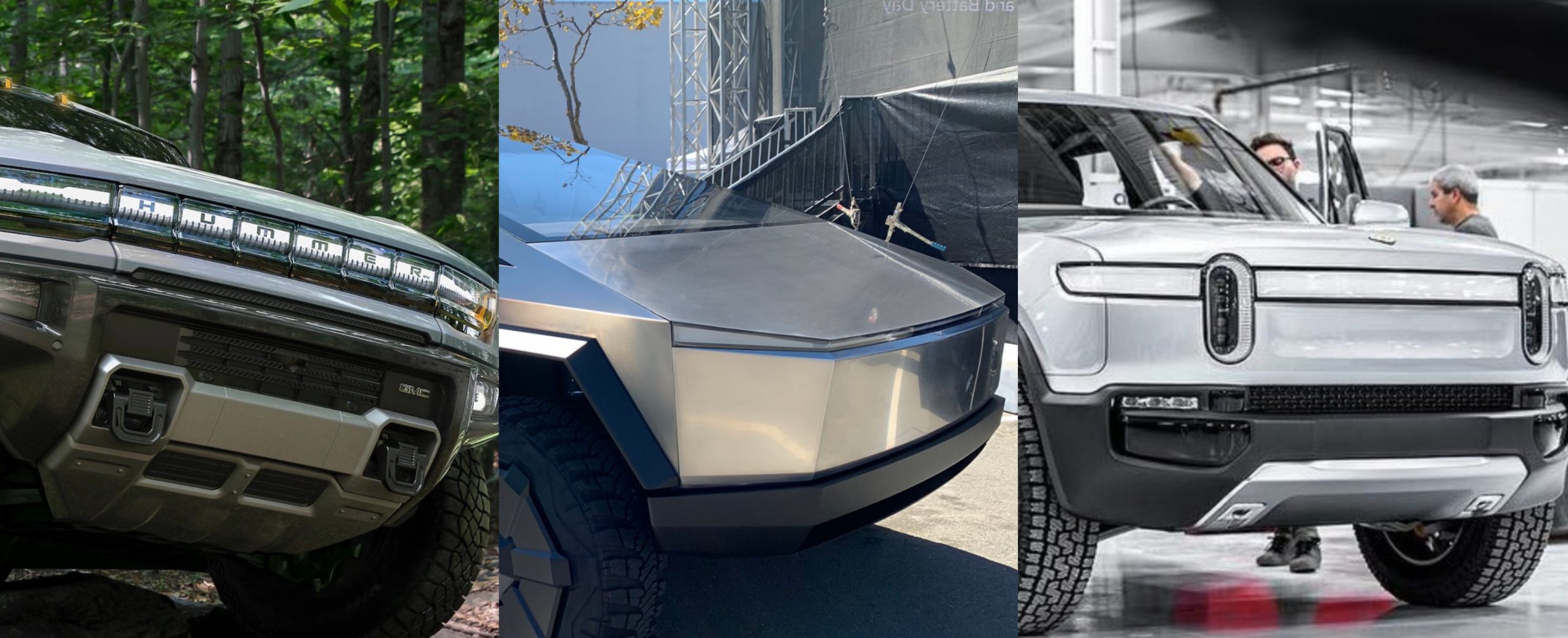

News
GMC Hummer EV vs Tesla Cybertruck vs Rivian R1T: price and specs comparison
Legacy automaker General Motors recently unveiled the Hummer EV, a monster of a vehicle that will be pitted against other all-electric trucks like the Tesla Cybertruck and the Rivian R1T. The Hummer EV isn’t just another rival in the sustainable pickup truck market. The rivalry between the GMC Hummer EV, the Tesla Cybertruck, and the Rivian R1T also represents the battle between legacy automakers and new kinds of auto manufacturers.
Price
GM seems to have gone a different route when deciding the Hummer EV’s price. GM plans to release four variants of the all-electric “supertruck:” the EV2, EV2X, EV3X, and the limited Hummer EV Edition 1. The base model’s starting price is $79,995 with a reservation fee of $100.
Each subsequent model’s price is raised by about $10,000, except the limited edition Hummer Edition 1. For example, the Hummer EV2X costs $89,995 and the EV3X costs $99,995. The Hummer EV Edition 1, on the other hand, starts at $112,595.
Tesla and Rivian’s EV pickup trucks are priced significantly less than the GM Hummer EV. The Rivian R1T starts at $69,000, though speculations suggest that the production truck will be more affordable. But even at its original price, the R1T is $10,000 less than GM’s cheapest all-electric pickup truck. Rivian’s R1T has a reservation fee of $1000.
When it comes to pricing, however, Tesla’s Cybertruck takes the cake with a starting price of $39,990 for its single motor RWD variant. Tesla set a reservation fee of $100 for the Cybertruck. Tesla seemed to go the opposite direction as the other two automakers and set the price for its top-tier Cybertruck at $69,900. This makes the top-tier Cybertruck Tri-Motor AWD more affordable than the GMC Hummer EV’s base variant.
Price may not be the main factor that sways potential customers from one EV pickup to another. GMC, Tesla, and Rivian have packed their EV trucks with the best specs and features possible. In the end, these specs and features may be the deciding factor for buyers.
- The Rivian R1T promises to bring electrification to the luxury adventure industry. (Credit: Rivian)
- Tesla Cybertruck futuristic aero wheel makes debut in Los Angeles unveiling event on Nov. 21, 2019 (Photo: Teslarati)
- (Credit: GMC)
Range and Performance
When it comes to range and performance in the EV market, Tesla sets the bar high. Tesla’s in-depth knowledge in battery technology has given it a serious edge against the competition, most notably legacy automakers like GM.
For the purposes of this comparison, Teslarati will be looking at top-tier variant of each EV pickup truck. In GM’s case, the Hummer EV Edition 1 has a tri-motor setup with an estimated 350+ miles of range. According to the OEM, the Hummer EV can run 0-60 mph in approximately 3 seconds.
Rivian’s R1T pickups beat the Hummer EV’s range, reaching up to 400+ miles on a single charge. In terms of performance, the R1T matches GM’s Hummer EV with the ability to run 0-60 mph in 3 seconds.
The Cybertruck will be Tesla’s first entry into the pickup truck market, but the company certainly didn’t hold back when it came to range and performance. The tri-motor Cybertruck is expected to have an EPA-estimated range of 500+ miles and can run 0-60 mph in about 2.9 seconds.
Unique Features
When it comes to novel features, GMC has some tricks up its sleeve. After all, the legacy automaker has been in the pickup truck market for decades and has enough experience to understand what Hummer customers want. When Rivian revealed the R1T, it seemed to understand the pickup truck market’s customer base well, too.
When it comes to vehicles, utility is a top priority, most especially for pickup truck buyers. Rivian understood that useful features mattered and included features like a cleaver gear tunnel and “Tank Turn.” Both features were specifically included in the Rivian R1T with the pickup customer in mind.
The GMC Hummer EV also has some features specifically tailored for pickup owners. During its unveiling, GM introduced the Hummer EV’s CrabWalk feature which allows the vehicle to navigate tricky terrain. The legacy automaker also included adaptive air suspension.
- (Credit: Tesla)
- (Credit: Rivian)
- (Credit: GMC)
Tesla’s focus has always been on sustainability, but it still managed to include some unique features in the Cybertruck. The adaptive air suspension GM announced for the Hummer EV was also seen in the Cybertruck during its unveiling.
The bed of the Cybertruck includes 110v/220v outlets, which impressed many pickup truck owners who use power tools for work or recreation. Tesla’s pickup truck also has Camp Mode, which allows passengers to sleep in their vehicles comfortably without draining the batteries.
Camp Mode is not unique to the Tesla Cybertruck. The feature is available in all Tesla vehicles. But it’s one of many features that neither GM nor Rivian has announced for their pickup trucks. Camp Mode will not be the only quirky Tesla feature that will make it to the Cybertruck, too. There are also features like Dog Mode and the multiple entertainment features available in Tesla vehicles like Caraoke.
Conclusion
Tesla and Rivian, especially the former, have forged their own path in the auto industry. Both car companies have committed to manufacturing sustainable vehicles with great performance and look good doing it.
In comparison, General Motors Truck Co. has been one of the leading car manufacturers in the world for decades and has created some of the toughest pickup trucks ever made. So it’s no surprise everyone wondered what GMC would bring to the table when it announced the Hummer EV.
Given each automaker’s competencies, the battle between the GM Hummer EV, Tesla Cybertruck, and Rivian R1T could decide the future of the electric pickup market. Nevertheless, the presence of the three all-electric trucks in the market today bodes well for the shift to sustainability as a whole. Every GMC Hummer EV sold is one less ICE truck on the road, after all.
Watch an in-depth look at the GMC Hummer EV in the video below.
News
Tesla begins Robotaxi certification push in Arizona: report
Tesla seems serious about expanding its Robotaxi service to several states in the coming months.

Tesla has initiated discussions with Arizona transportation regulators to certify its driverless Robotaxi service in the state, as per a recent report from Bloomberg News. The move follows Tesla’s launch of its Robotaxi pilot program in Austin, Texas, as well as CEO Elon Musk’s recent comments about the service’s expansion in the Bay Area.
The Arizona Department of Transportation confirmed to Bloomberg that Tesla has reached out to begin the certification process for autonomous ride-sharing operations in the state. While details remain limited, the outreach suggests that Tesla is serious about expanding its driverless Robotaxi service to several territories in the coming months.
The Arizona development comes as Tesla prepares to expand its service area in Austin this weekend, as per CEO Elon Musk in a post on X. Musk also stated that Tesla is targeting the San Francisco Bay Area as its next major market, with a potential launch “in a month or two,” pending regulatory approvals.
Tesla first launched its autonomous ride-hailing program on June 22 in Austin with a small fleet of Model Y vehicles, accompanied by a Tesla employee in the passenger seat to monitor safety. While still classified as a test, Musk has said the program will expand to about 1,000 vehicles in the coming months. Tesla will later upgrade its Robotaxi fleet with the Cyercab, a two-seater that is designed without a steering wheel.
Sightings of Cybercab castings around the Giga Texas complex suggests that Tesla may be ramping the initial trial production of the self-driving two-seater. Tesla, for its part, has noted in the past that volume production of the Cybercab is expected to start sometime next year.
In California, Tesla has already applied for a transportation charter-party carrier permit from the state’s Public Utilities Commission. The company is reportedly taking a phased approach to operating in California, with the Robotaxi service starting with pre-arranged rides for employees in vehicles with safety drivers.
News
Tesla sets November 6 date for 2025 Annual Shareholder Meeting
The automaker announced the date on Thursday in a Form 8-K.

Tesla has scheduled its 2025 annual shareholder meeting for November 6, addressing investor concerns that the company was nearing a legal deadline to hold the event.
The automaker announced the date on Thursday in a Form 8-K submitted to the United States Securities and Exchange Commission (SEC). The company also listed a new proposal submission deadline of July 31 for items to be included in the proxy statement.
Tesla’s announcement followed calls from a group of 27 shareholders, including the leaders of large public pension funds, which urged Tesla’s board to formally set the meeting date, as noted in a report from The Wall Street Journal.
The group noted that under Texas law, where Tesla is now incorporated, companies must hold annual meetings within 13 months of the last one if requested by shareholders. Tesla’s previous annual shareholder meeting was held on June 13, 2024, which placed the July 13 deadline in focus.
Tesla originally stated in its 2024 annual report that it would file its proxy statement by the end of April. However, an amended filing on April 30 indicated that the Board of Directors had not yet finalized a meeting date, at least at the time.
The April filing also confirmed that Tesla’s board had formed a special committee to evaluate certain matters related to CEO Elon Musk’s compensation plan. Musk’s CEO performance award remains at the center of a lengthy legal dispute in Delaware, Tesla’s former state of incorporation.
Due to the aftermath of Musk’s legal dispute about his compensation plan in Delaware, he has not been paid for his work at Tesla for several years. Musk, for his part, has noted that he is more concerned about his voting stake in Tesla than his actual salary.
At last year’s annual meeting, TSLA shareholders voted to reapprove Elon Musk’s compensation plan and ratified Tesla’s decision to relocate its legal domicile from Delaware to Texas.
Elon Musk
Grok coming to Tesla vehicles next week “at the latest:” Elon Musk
Grok’s rollout to Tesla vehicles is expected to begin next week at the latest.

Elon Musk announced on Thursday that Grok, the large language model developed by his startup xAI, will soon be available in Tesla vehicles. Grok’s rollout to Tesla vehicles is expected to begin next week at the latest, further deepening the ties between the two Elon Musk-led companies.
Tesla–xAI synergy
Musk confirmed the news on X shortly after livestreaming the release of Grok 4, xAI’s latest large language model. “Grok is coming to Tesla vehicles very soon. Next week at the latest,” Musk wrote in a post on social media platform X.
During the livestream, Musk and several members of the xAI team highlighted several upgrades to Grok 4’s voice capabilities and performance metrics, positioning the LLM as competitive with top-tier models from OpenAI and Google.
The in-vehicle integration of Grok marks a new chapter in Tesla’s AI development. While Tesla has long relied on in-house systems for autonomous driving and energy optimization, Grok’s integration would introduce conversational AI directly into its vehicles’ user experience. This integration could potentially improve customer interaction inside Tesla vehicles.
xAI and Tesla’s collaborative footprint
Grok’s upcoming rollout to Tesla vehicles adds to a growing business relationship between Tesla and xAI. Earlier this year, Tesla disclosed that it generated $198.3 million in revenue from commercial, consulting, and support agreements with xAI, as noted in a report from Bloomberg News. A large portion of that amount, however, came from the sale of Megapack energy storage systems to the artificial intelligence startup.
In July 2023, Musk polled X users about whether Tesla should invest $5 billion in xAI. While no formal investment has been made so far, 68% of poll participants voted yes, and Musk has since stated that the idea would be discussed with Tesla’s board.
-

 Elon Musk1 week ago
Elon Musk1 week agoTesla investors will be shocked by Jim Cramer’s latest assessment
-

 Elon Musk3 days ago
Elon Musk3 days agoElon Musk confirms Grok 4 launch on July 9 with livestream event
-

 Elon Musk18 hours ago
Elon Musk18 hours agoxAI launches Grok 4 with new $300/month SuperGrok Heavy subscription
-

 News7 days ago
News7 days agoTesla Model 3 ranks as the safest new car in Europe for 2025, per Euro NCAP tests
-

 Elon Musk2 weeks ago
Elon Musk2 weeks agoA Tesla just delivered itself to a customer autonomously, Elon Musk confirms
-

 Elon Musk1 week ago
Elon Musk1 week agoxAI’s Memphis data center receives air permit despite community criticism
-

 Elon Musk2 weeks ago
Elon Musk2 weeks agoTesla’s Omead Afshar, known as Elon Musk’s right-hand man, leaves company: reports
-

 News2 weeks ago
News2 weeks agoXiaomi CEO congratulates Tesla on first FSD delivery: “We have to continue learning!”

